
Batchelor Institute Lecturer Jaemie Page Explores Cultural Connections on Gunditjmara Country Ahead of ACAL Conference in Melbourne
Batchelor Institute acknowledges the Gunditjmara people as the Traditional Custodians of the lands visited during this trip, paying respects to their Elders past and present. We also recognise the Kungarakan and Warai peoples of Batchelor, the Arrernte peoples of Mparntwe (Alice Springs), and the Larrakia peoples of Darwin, where our campuses are located, and the Wurundjeri Woi-wurrung and Bunurong peoples of the Kulin Nation as the Traditional Custodians of Melbourne.
In September 2025, Batchelor Institute lecturer Jaemie Page embarked on an inspiring journey to Victoria, attending the Australian Council for Adult Literacy (ACAL) conference in Melbourne and connecting with Indigenous ranger groups on Gunditjmara country in the southwest. Accompanied by Thamarrurr Ranger Uriah Crocombe, the visit highlighted the shared strengths of Indigenous land management practices across Australia, aligning with Batchelor's "Both Ways" philosophy that integrates Indigenous knowledge with contemporary education.
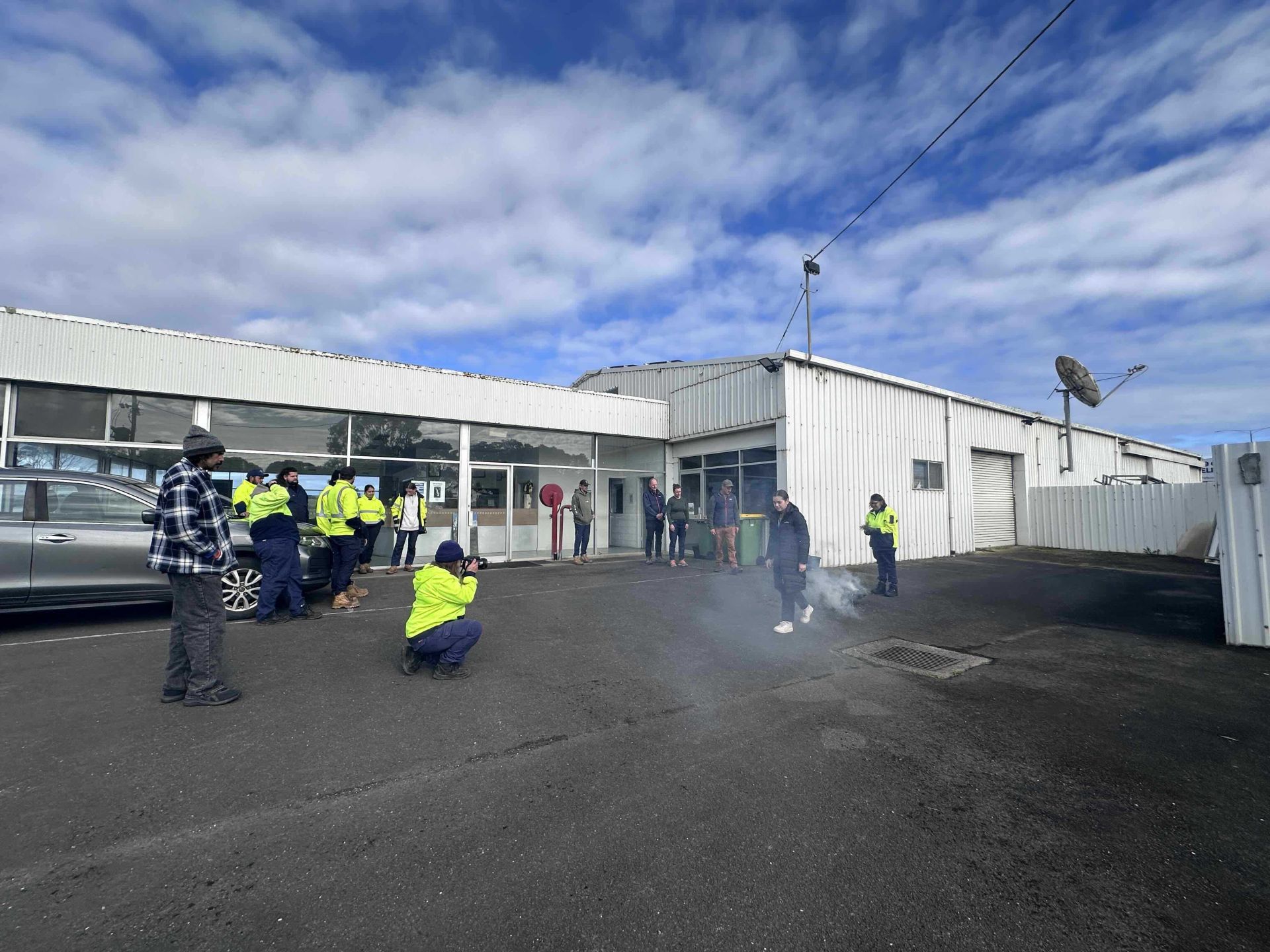
The adventure began with a warm welcome by the Winda-Mara Aboriginal Corporation in Portland. Elder Eileen Alberts led a smoking ceremony, setting the tone for a day of cultural exchange with the guardians (rangers). The group toured the Budj Bim Cultural Landscape, a UNESCO World Heritage site and Indigenous Protected Area (IPA). Here, they explored ancient eel traps and settlements at Tyrendarra IPA—a 1,400-metre by 300-metre lava flow featuring interconnected stone walls, dams, weirs, and channels designed for trapping kooyang (eels).
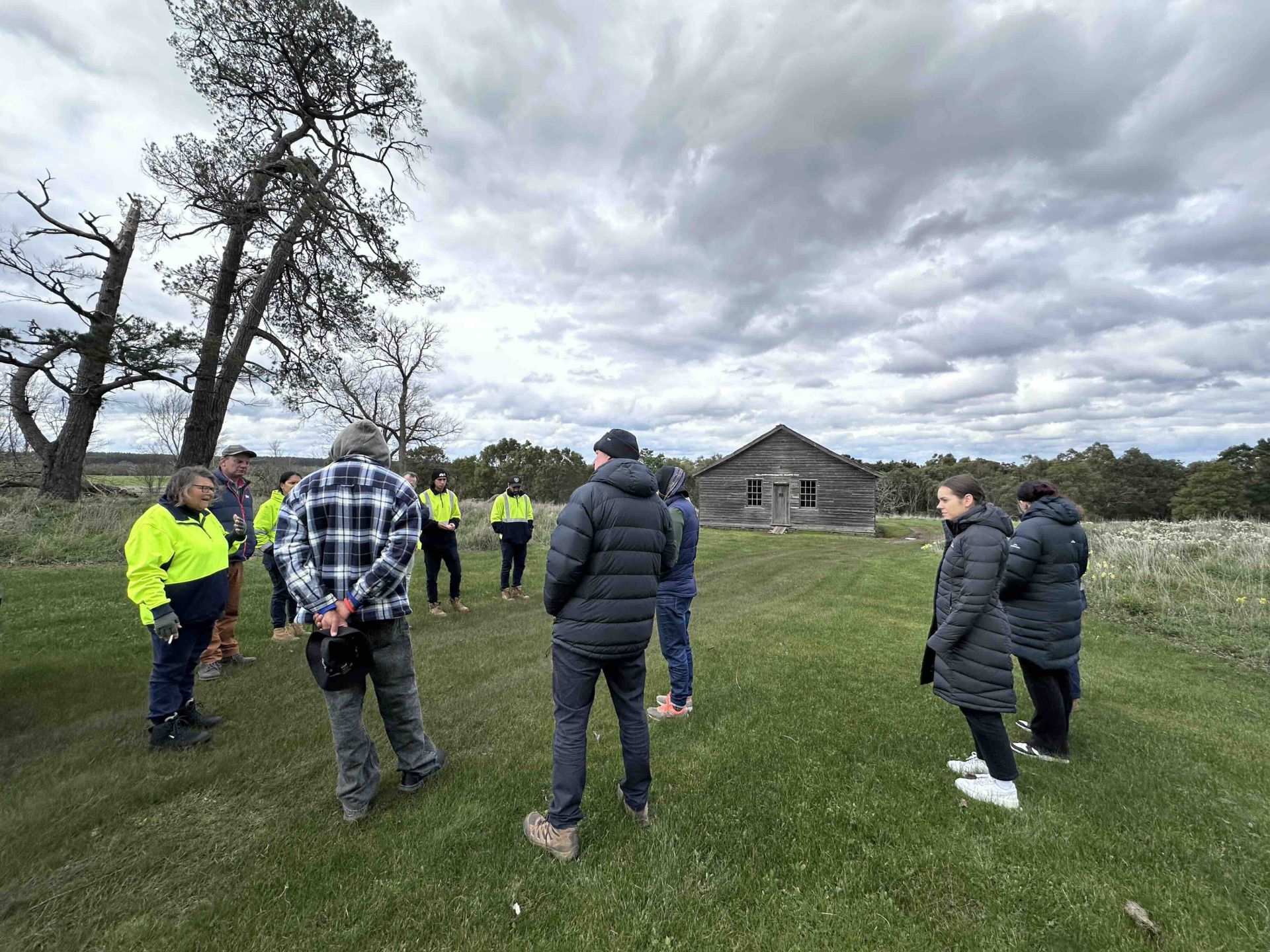
Uriah was particularly thrilled to spot a koala, though the group learned of the challenges koalas pose through over-grazing due to the loss of habitat. They also visited Lake Condah Mission ruins, established in 1867 and land reclaimed in 1987 after decades of dispossession. Now, it features an education centre and family cabins at Breakaway Creek, symbolising resilience and land restoration.
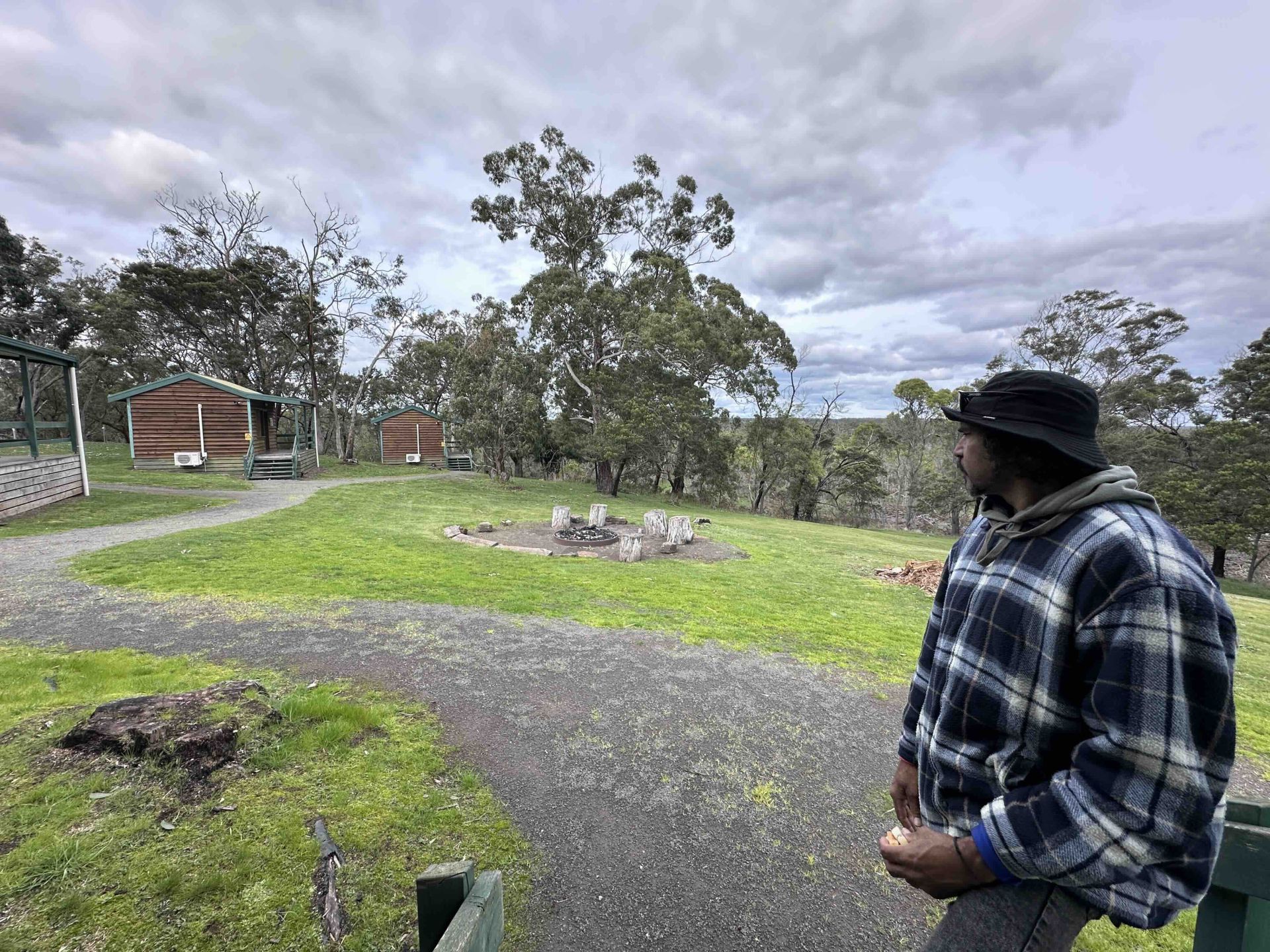
It was inspiring to see and hear how they continue to fight to reclaim their lands and restore the waterways, lakes and forests that had been cleared and drained by settlers. As Jaemie noted, the site's restoration efforts are bringing back wildlife, including eels with their remarkable life cycle: migrating thousands of kilometres to the Coral Sea to spawn, with their young returning to the same freshwater systems.
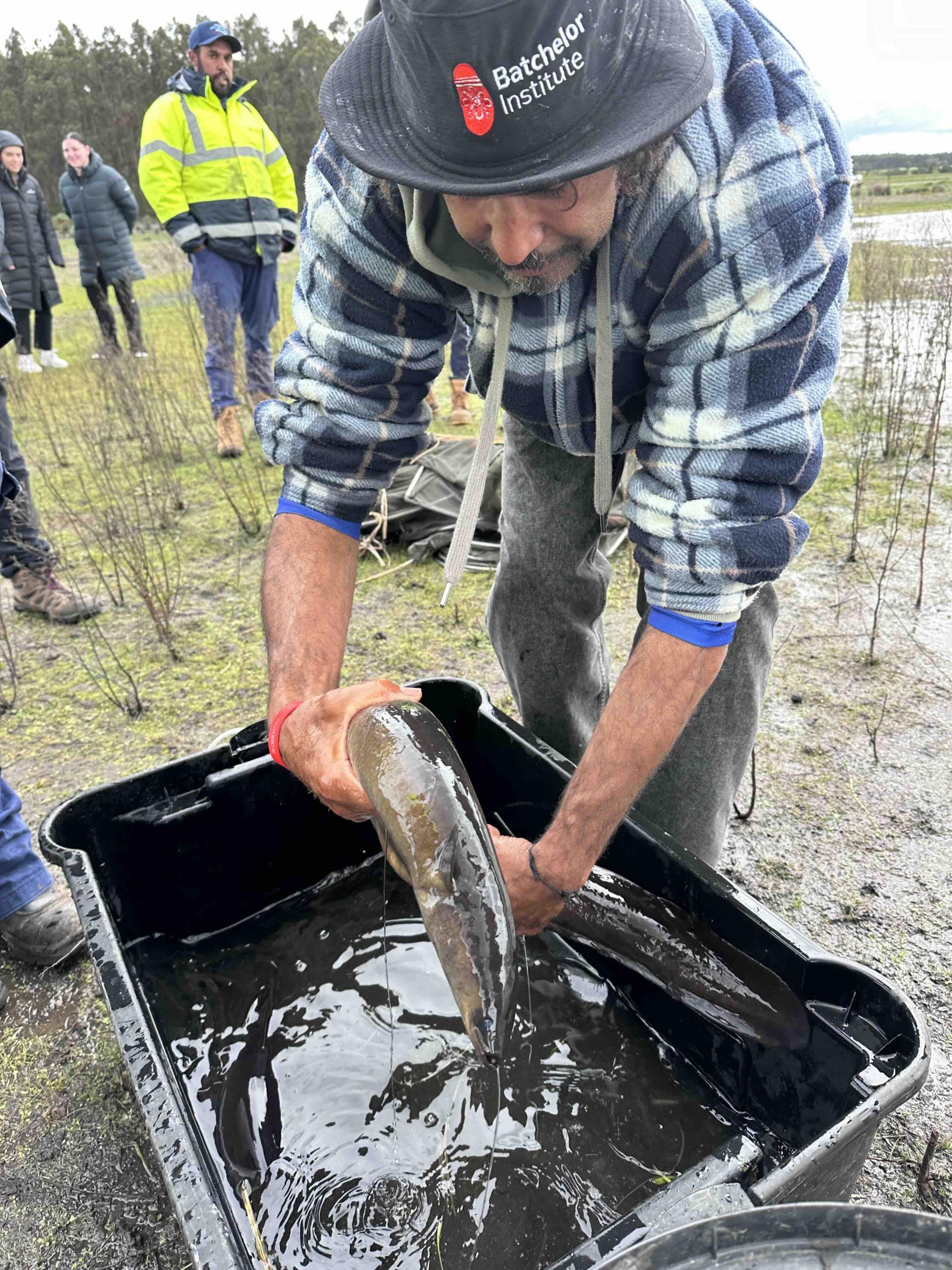
On the second day, the visit shifted to South West TAFE in Warrnambool and the Eastern Marr Aboriginal Corporation Rangers. Welcomed by Manager First Nations Engagement Charmaine Clarke and Elder Tommy Clarke, who took them out to see shell middens and discuss coastal changes due to European settlement. Jaemie and Uriah presented on Batchelor's work with NT Rangers, impressing the groups with stories and pics of remote western top end NT landscapes involving boats, helicopters, and fire management. Uriah, in turn, was inspired by SW TAFE's construction training setup.
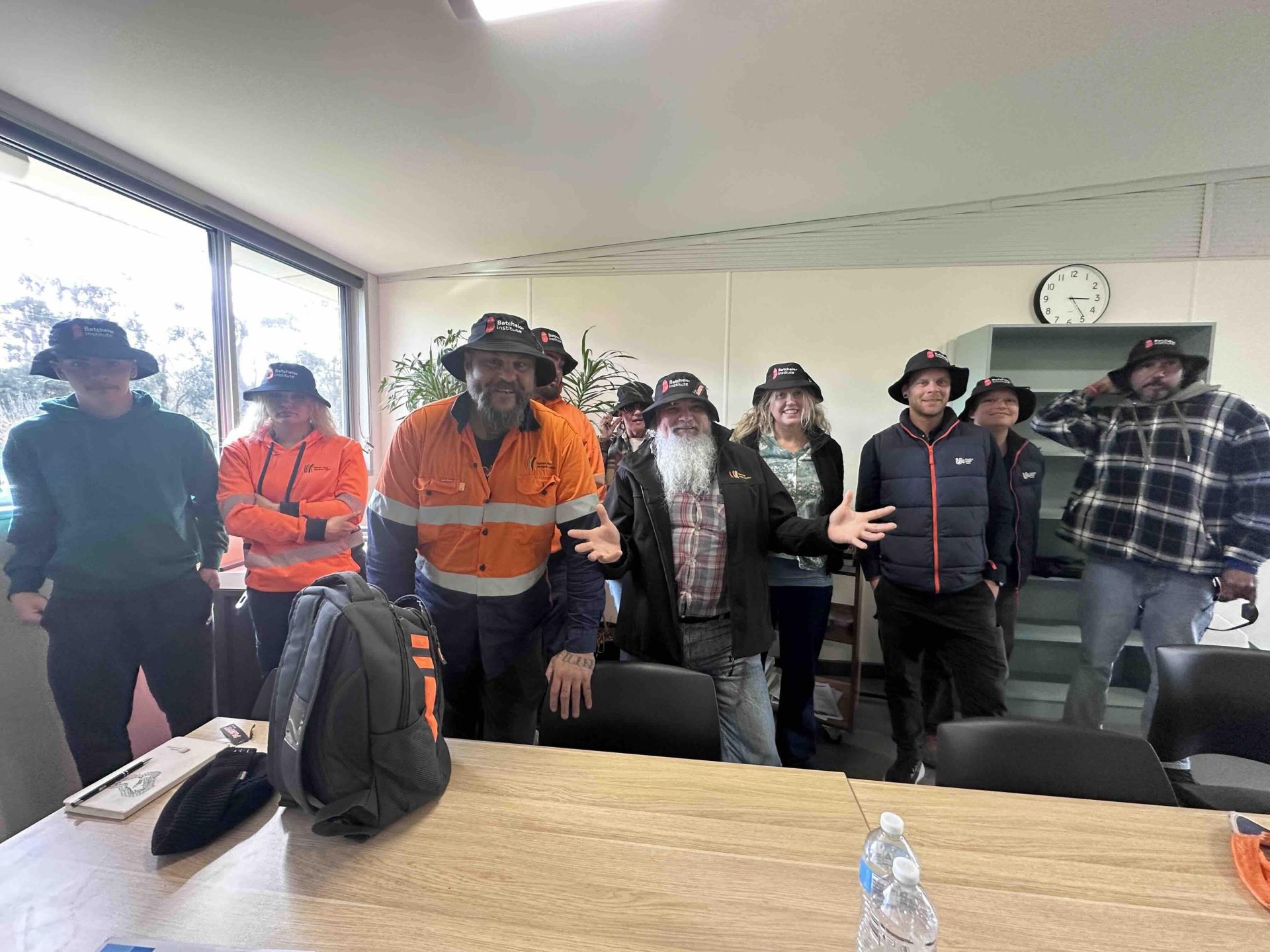
Reflecting on the experience, Jaemie highlighted the Gunditjmara peoples' enduring strength amid historical violence and environmental impacts. "It was a fascinating trip hearing of the dispossession and violence against the Gunditjmara peoples and their resilience and efforts to win back land and stay strong together," he shared. It was also interesting to see new land uses such as Blue gum plantations and wind farms changing the landscapes and challenging some in farming communities. The visit underscored opportunities for collaboration between RTOs like Batchelor and SW TAFE in delivering Conservation and Ecosystem Management training tailored to support first nations rangers across diverse landscapes.
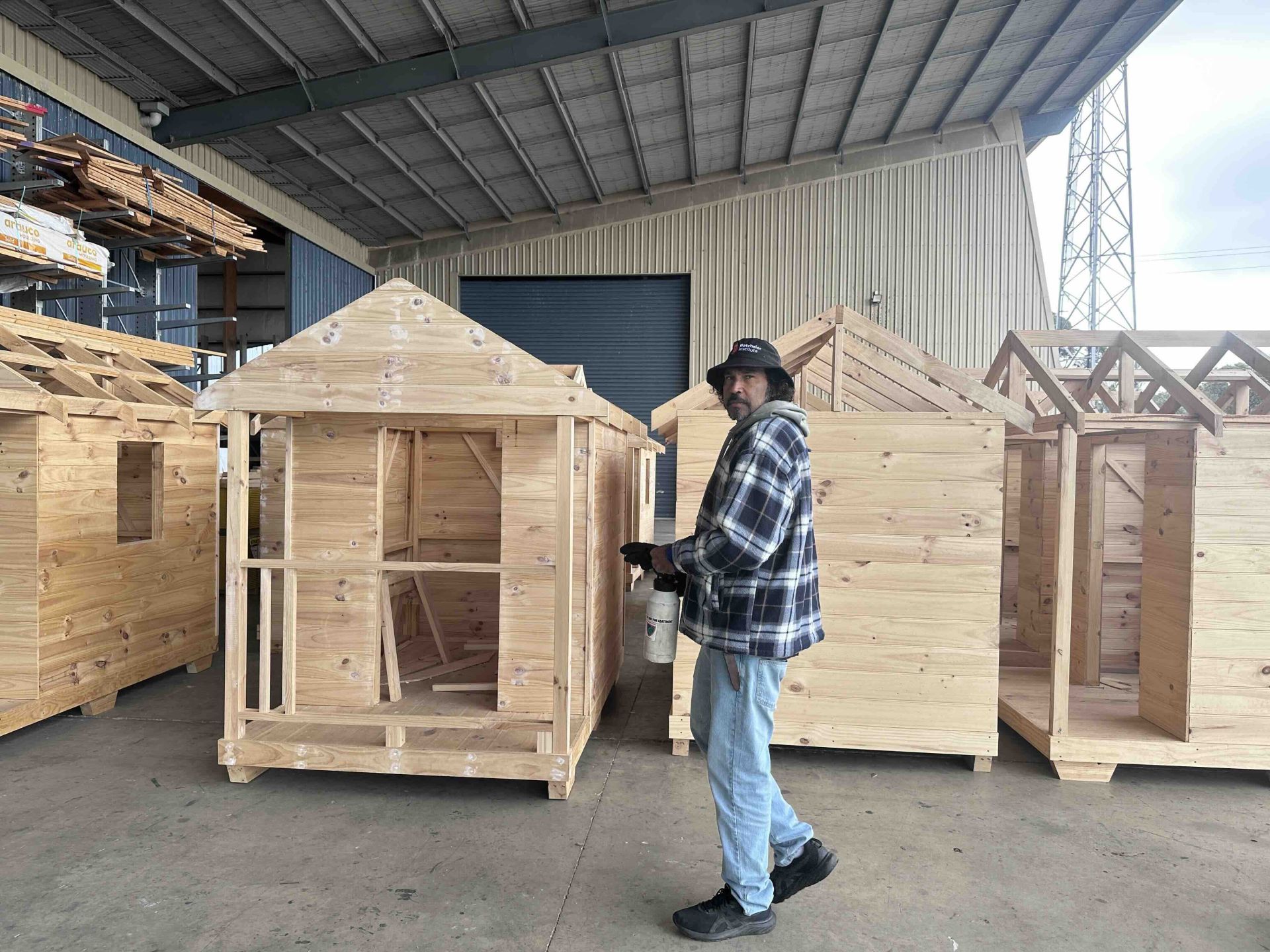
The trip culminated at the ACAL conference, themed "Inclusion, empowerment, employment: Literacies for a dynamic future." Jaemie presented on "language, literacy, numeracy and digital (LLND) skills training to support local voices and leadership with Aboriginal Rangers in the NT," emphasising language, literacy, and numeracy development in ranger programs. Participants once again loved the photos of wild landscapes and practical on-the-job learning. The event offered networking with LLND experts and a reflection on Australia's adult literacy history, as well as new challenges such as AI, calling for renewed community-focused initiatives.
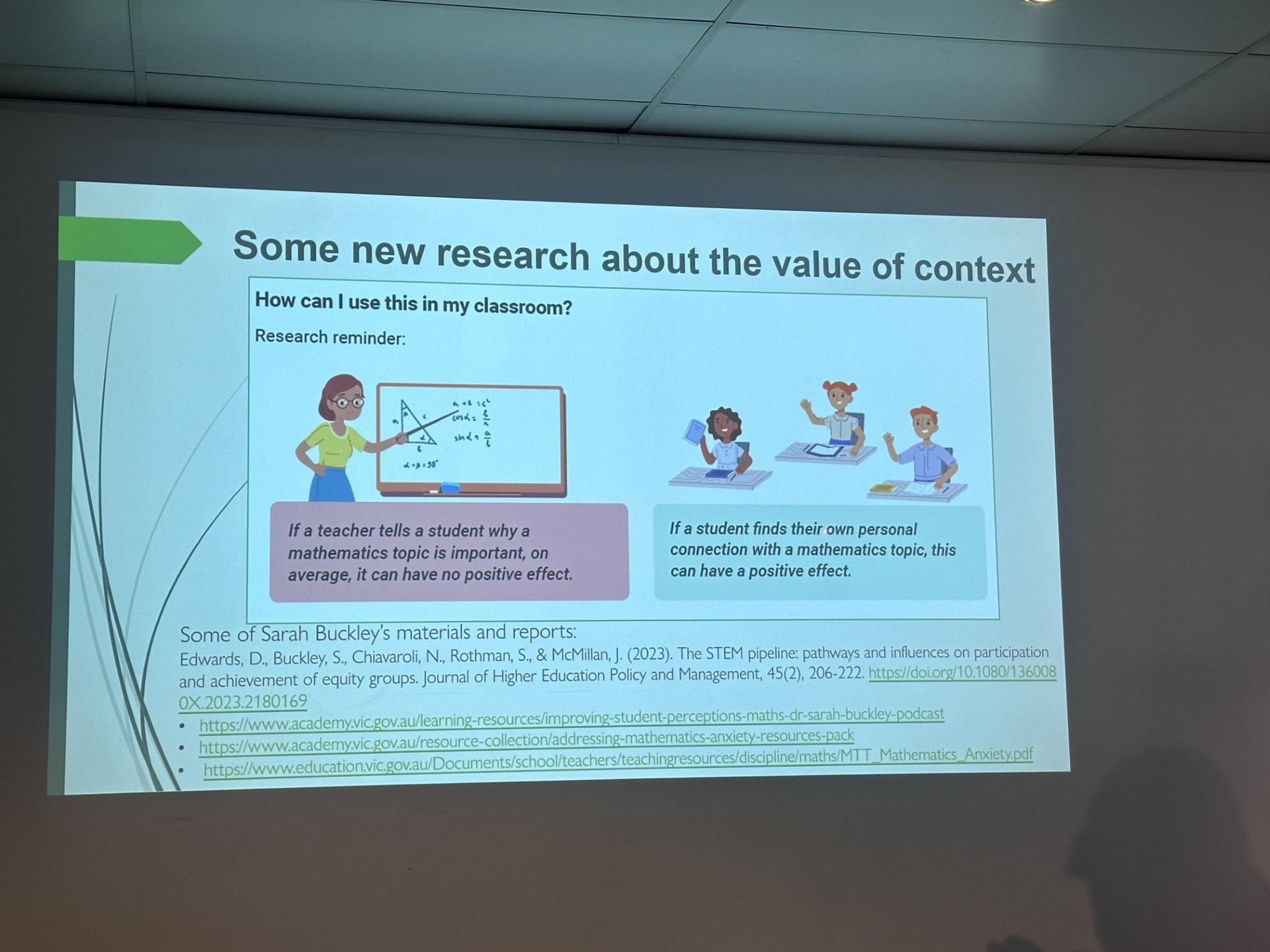
This cultural exchange reinforces Batchelor Institute's commitment to "Both Ways" learning, where Indigenous knowledge holders lead in education that empowers communities. We're excited about potential future partnerships to strengthen Indigenous ranger training nationwide.
If you’re interested in hearing more from Jaemie and learn about ranger leadership opportunities at Batchelor Institute he will be presenting at the 2025 Territory Natural Resource Management (TNRM) conference in November.
For more on our VET programs and our adult literacy pathways, please visit batchelor.edu.au.
Batchelor Institute of Indigenous Tertiary Education (RTO 0383) is Australia’s leading provider of tertiary education for Indigenous Australians, delivering Vocational Education and Training (VET) and higher education grounded in the “Both Ways” philosophy. With campuses on Kungarakan and Warai Country in Batchelor and Arrernte Country in Alice Springs, the Institute empowers students to achieve liberation through education.
